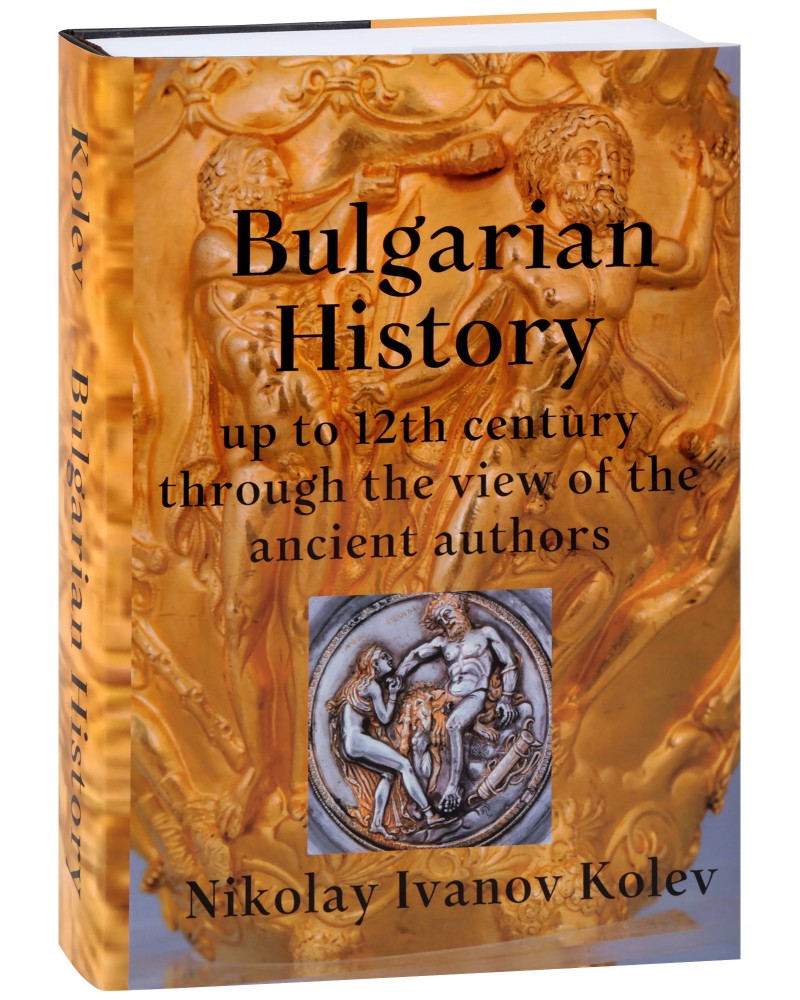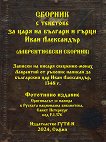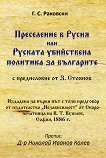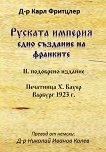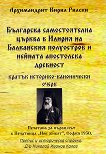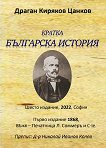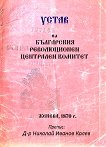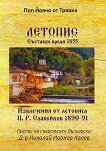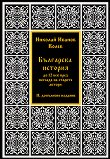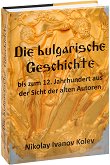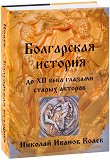"In numerous conversations with my children who grew up in Germany, questions like "Who are we, the Bulgarians, and who created the Bulgarian state?" always came up. My children are intelligent and over the years it became clear that what I had learned at school, although I was always an excellent student, was not enough to answer these seemingly easy questions. Between 1944 and 1990 there was a chronic shortage of truth in Bulgaria, not that it was lacking, but somehow it did not reach us. After 1990, we experienced an explosion of historical publications, many of which expressed a fascination with the freedom to publish, which was lacking before, rather than the ability to think analytically before publishing. Over time this too has changed, a new generation of historians is now working and publishing and many of them think history textbooks should be re-written, but this is not yet happening. So, I remain indebted to my children with the answers to the above two questions, and while I'm still breathing, I wish I could change that situation.
The object which I pursue in the present book is to collate the information which has come down to us from the old writers, and to draw some conclusions concerning the people who extended the Bulgarian state into the Balkans, without the benefit of the numerous modern books which I have read, and which fill my library. This I do not out of lack of respect for the immense work of modern Bulgarian literary men and historians, but out of a desire to make an independent assessment of events and independent conclusions about the interconnectedness and sequence of events and their consequences, reading only the old authors.
By old authors I mean contemporaries of the events or those who described them after them. Such, for example, are the authors who wrote in Greek in Byzantium and in Latin in the Western Roman Empire. Authors working 100-200 years or more after the events being described often use older authors. However, they also tell us what the relationship is between events and life in the old and more recent times. Contemporaries are better informed in detail, and later authors have a better view of the general context of events and their outcomes. This is a very important source of information to orient one among the many different events and the names of the peoples involved in them.
Dear reader, allow me in this place to mention that I do not write a history, it is written with the actions of our ancestors. My modest task is to collect and arrange what is known in such order that you can create your own idea of Bulgaria's past. I am aware of the risk of this endeavor and ask for leniency.
In writing this book, I sought to greatly avoid assumptions about events for which we do not have credible information. In writing this book, I sought to greatly avoid assumptions about events for which we do not have credible information.
The method used to write this book is this: first, after reading the sources quoted in Chapter 40, I made samples that relate to Bulgarian history. This required a revision of the individual chapters to put the events in the right context and interlinks with each other. This was the most interesting part of the work.
Chapter 37 provides brief information about Tsarigrad (Constantinople). They are necessary in order to better understand the numerous unsuccessful attempts of the Bulgarians to take over this city.
Chapter 38 presents information on the measurement unites used by the old authors and their translation into the measurement unites used today. An important part of this chapter is also the section on chronologies used by various authors. Very often events are dated with the given year of the reign of one Roman emperor or another. That is why a table of East Roman emperors is provided, making it easier to check the dates. In the dating based on astronomical phenomena, which is by the way the most accurate, I have used the tables of the American Astronautical Agency.
The quoted text of the old authors is always in quotation marks. I use brackets in such text to introduce my own clarifications, without indicating that these are the author's notes. Chapter 40 contains the literature cited. The citation of sources in a book is most often followed by two numbers, one denoting the volume number and the other the page number. When the volume is a single volume, only the page is indicated. The years after the birth of Christ are given only by a number only. The years before the birth of Christ are given by a number followed by BC.
The spelling of personal names varies across linguistic traditions. This should not disturb us. I will preserve the original record in the quotations in order not to alter their originality, but in my text I will use names related to the Bulgarian linguistic tradition.
The book ends with information about the uprising of Asen and Peter and the liberation of Bulgaria from Byzantine rule.
I hope the book will find a place in the library of the educated and open-minded Bulgarian, to serve him as a reference for information from the old authors who have reached us about various events in our history. It can also be a valuable reference material for pupils, students, researchers, and teachers.
Nikolay Ivanov Kolev (Gutev), 1.1.2015, Herzogenaurah, Germany"
Из книгата
